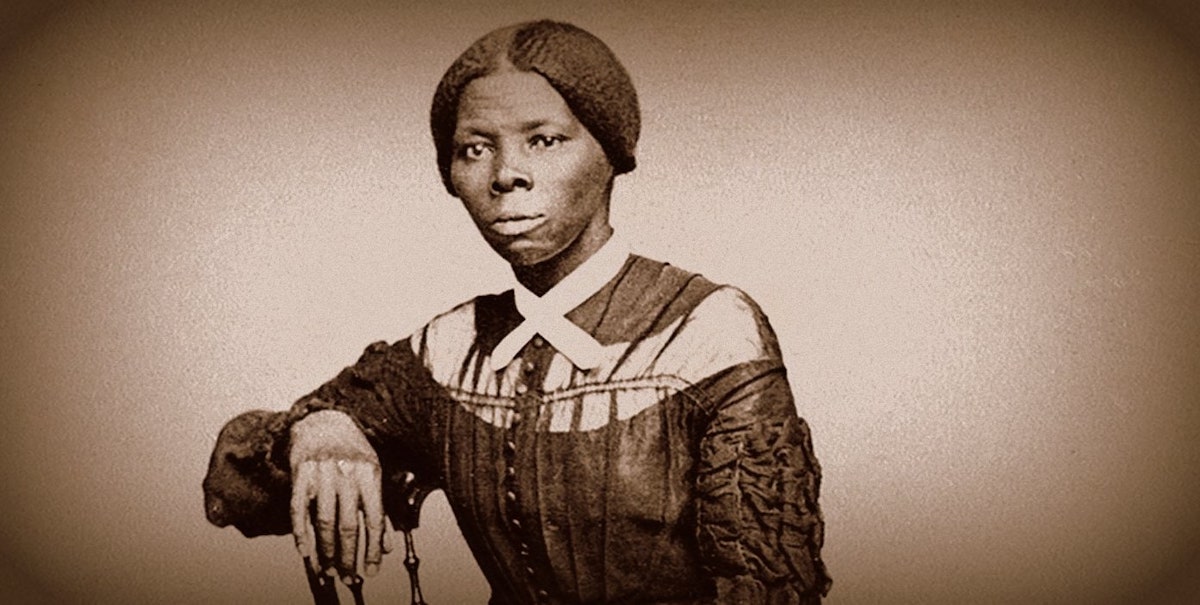While watching the movie Harriet last week, I was emotionally moved many times at how Harriet Tubman’s faith led her to do incredibly heroic acts because she knew it was the right thing.
But the most haunting part of the movie for me was how strongly the Bible was used to support slavery. White, land-owning people leaned hard on the Bible as proof that they could not only own other human beings, but also treat them however they wanted.
Here was their argument from scripture:
- Noah had three sons: Shem, Japheth, and Ham, and Noah cursed Ham’s son Canaan to serve the others. Whites assumed that Jews came from Shem, whites from Japheth, and Blacks from Ham (and Canaan). Therefore, it was God’s will that blacks were enslaved.
- There were rules in the Old Testament for how to conduct slavery, therefore it was an approved system.
- Jesus never specifically condemned slavery.
- Paul wrote several times that slaves were to obey their masters.
- The book of Philemon is written on behalf of a runaway slave returning to his master.
- God allowed Africans to come to the United States as slaves so they they could hear the gospel.
Many abolitionists tried to argue from Scripture that slavery was wrong. However, as Jemar Tisby notes in The Color of Compromise:
Abolitionist claims were mostly met with skepticism because they advanced arguments based on the “spirit” other than the “letter” of the law. Even when abolitionists made their case from the Bible, they were criticized because they were not able to cite a specific passage that explicitly condemned slavery. Instead, they had to argue from the broader principles such as love of neighbor and the unity of humankind. Southern theologians, by contrast, appeal to a “plain reading” of scripture which they claim clearly showed righteous and godly people who enslaved people with apparently no rebuke or accusation of sinfulness. Pro-slavery advocates grew confident in the Confederate cause because it seemed like the pro-slavery theological arguments respected the Bible’s authority and employed a straightforward method of scriptural interpretation.
And again,
…for most Christians, even those sympathetic to the plight of black people, the southern pro-slavery advocates seemed to have a clearer and simpler biblical argument, one that did not require sources outside the scripture or employ unfamiliar interpretations.
150 years later, using the Bible to defend chattel slavery seems insidious. We are repulsed at how the Bible was used to baptize this kind of hatred. We try to distance ourselves from this evil generation who either believed these things, or were complicit by allowing others to hijack the Bible to defend their culture.
Yet.
How hard is it to imagine Tisby’s words replicated for the social issues of our age? How often do we find ourselves arguing about specific verses and ignoring the larger narratives? How often do we find ourselves in conflict over the “spirit” and “letter” of the law? How often do we have to counteract a “plain reading of scripture” that is filtered through culturally accepted norms?
We continue to use cherry-picked parts of the Bible to justify the hate we give. Or worse, we pretend that we are “shackled” to the text and cannot move beyond it despite how much we’d really like to.
I think about conversations I’ve had around social issues where someone says, “Either we must believe the whole Bible or none of it.” They don’t realize that there is no “plain reading of scripture”. These people would have, at minimum, tacitly agreed with the side of slaveholders just 150 years ago, if not preached directly in support of them.
This is not a legacy I am willing to conceded to.
It took a war for our ancestors to finally agree that, despite the absence of biblical verses that supported it, the abolition of slavery was still in line with the gospel of Jesus.
What are we using the Bible to defend or destroy that devotees of Christ 150 years from now will gag at? What are the things that our grandchildren be embarrassed of that we allowed to continue in the name of defending the Bible? Where is the log in our own eye that we cannot see, or wish not to see?
Lord have mercy.



